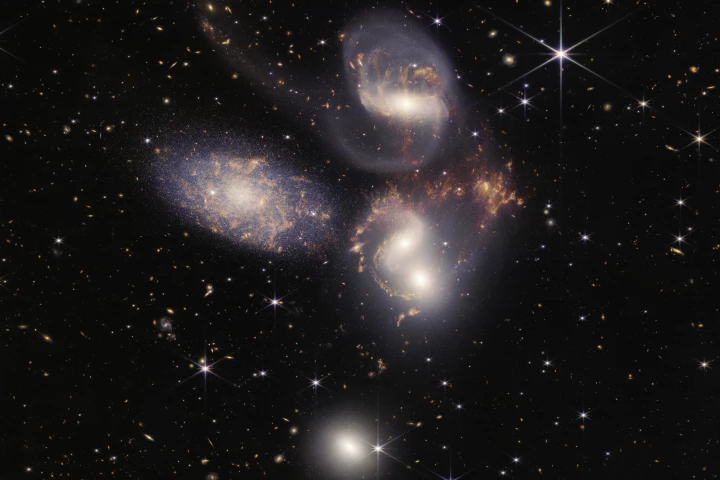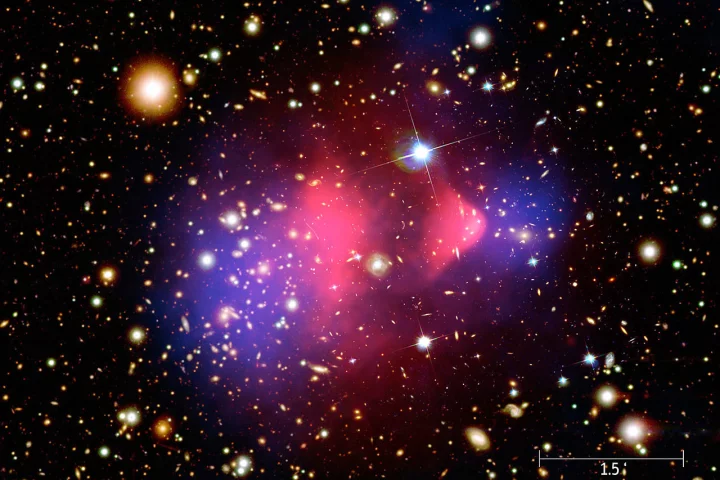Cosmology
-
Astronomers have produced the largest 3D map of the universe, including an interactive VR video. In the process, they’ve uncovered some tantalizing hints that our understanding of physics, including the ultimate fate of the cosmos, could be wrong.
-
Astronomers have discovered the most distant – and therefore earliest – known black hole. Hiding in a galaxy called GN-z11, this black hole is bigger than should be possible given the age of the universe.
-
Astronomers have discovered a colossal cosmic structure that’s so big it threatens our entire understanding of the universe. The Big Ring spans about 3% of the radius of the observable universe – and it might be part of an ever bigger structure.
-
If a new study holds water it might be the JWST's most important discovery ever. Three bright objects in the distant universe could be the first candidate “dark stars,” hypothetical celestial objects powered by the annihilation of dark matter.
-
Reviving an almost century-old hypothesis, a new study led by Rajendra Gupta at the University of Ottawa based on data from the James Webb Space Telescope (JWST) suggests that the universe may be twice as old as previously thought.
-
A groundbreaking new study could answer a perplexing astrophysics mystery without complicating our current models. Physicists suggest that black holes could contain a strange form of energy that’s accelerating the expansion of the universe.
-
Astronomers have put together one of the most comprehensive maps of all the matter in the universe. The huge undertaking hints at a slightly smoother universe than we thought, suggesting that something might be missing from our models.
-
Everything has to end eventually – including the universe itself. It might be hard to imagine a catastrophe big enough to affect the entirety of existence, but here are some of the leading hypotheses about how the universe could end, and when.
-
The world’s most sensitive dark matter detector is ready to tackle one of the most perplexing mysteries of the universe. Over 50 times more sensitive than others, LUX-ZEPLIN lurks quietly a mile underground, waiting for these hypothetical particles.
-
NASA has released a huge new report that astronomers are calling Hubble’s magnum opus. Analyzing 30 years of data from the famous space telescope, the new study makes the most precise measurement yet of how fast the universe is expanding.
-
Data from DESI's first survey run has produced the largest and most detailed 3D map of the universe so far. The stunning image reveals the gigantic cosmic web of galaxies across billions of light-years – and the project is only just beginning.
-
How did the universe end up with exactly the amount of dark matter needed? A new model suggests dark matter particles in the early universe converted regular matter into dark matter exponentially, before being slowed by the expansion of the universe.
Load More











